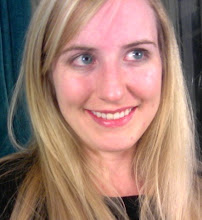Yet here I am in college counseling. I don't mean to imply that I'm disappointed in this, because it is not at all the case. In my heart I am a clinical psychologist and a generalist. You could plop me into just about any setting (hospital, college, community/non-profit agency) and I would thrive. I do find it curious that my path in life keeps diverting into college counseling.
I am the only clinical psychologist employed at my center. The other counselors here are PhD or MA/MS level counseling psychologists. I was brought in to manage the clinical cases that were challenging the scope of training of the current staff. As best I can tell, I was recruited because I had experience with serious and persistent mental illness, as well as experience in risk and crisis management (and working in primary care).
Because of the differences in training (clinical vs counseling, medical model vs developmental model), there are some major theoretical differences that pop up in my workplace. The biggest of these are differences in conceptualization of the model and mission of the center. This is a complex issue. Currently students come in and are asked if they want to be seen for career counseling or for "personal issues." There is an cautiousness around asking students whether they want to be seen for "mental health" because this implies "mental illness" and could create a level of stigma that might prevent students from seeking assistance. For me, as a provider of mental health services (I don't participate in the career counseling component at present) this is frustrating. I think: How can we work toward breaking down the stigma around mental illness if we refuse to call an apple an apple?
Also a part of this picture is the mission of the center I work in. It is to "enhance academic success" and "support the educational mission" of the university.
Consequently, recommended reading includes books like this:
 An excerpt from the first pages states this: "A physician who views the work as a job and is simply interested in making a good income does not have a calling, while a garbage collector who sees the work as making the world a cleaner, healthier place could have a calling (pp.17-18)."
An excerpt from the first pages states this: "A physician who views the work as a job and is simply interested in making a good income does not have a calling, while a garbage collector who sees the work as making the world a cleaner, healthier place could have a calling (pp.17-18)."Oh. My. Goodness.
I get the point here. Do what you love. Find your passion and follow it. Live it, breathe it, bathe in it. But here's the rub: The book seems to interchangeably use the words "purpose," and "calling," and "vocation."
What if your vocation isn't your calling? What if you're 18 and you don't know what your passion or "purpose" is? How can anyone possibly account for the developmental changes that young adulthood will bring (that is--a career that one believes will be promising at age 18 may not feel so fulfilling at 35). What if you know what your passion is and it doesn't pay anything?
I work with students who have a passion for backpacking and shopping, but they also face a huge amount of both internal (self) and external (family, societal) pressure to demonstrate success financially. Do they follow their passion (quit school and backpack or become 'professional shoppers')--hoping that their bodies and the job market holds up? Or do they do the culturally acceptable thing and stick it out (getting a business degree and working a 9-5 job)?
This is a very real pressure that students face today. And in my university (even more than the last university I worked in), it is STRONGLY emphasized. Find your passion. Devote your life to it.
That pressure alone would be enough to alarm most college students. Now imagine a college student under that pressure who also has any of the following: An anxiety disorder. Depression. Bereavement after loss of a parent or good friend. ADHD or a Learning Disability. An Eating Disorder.
It is simply overwhelming for them. And suddenly my role within the center with very specific guidelines ("enhance academic success, support the educational mission") starts to look a lot different than the role of a counseling psychologist who engages students in career or academic counseling. It starts to look like evidence-based treatment of anxiety, depression, grief, and disordered eating. Because I just can't work with students on skills for academic success (time management, etc) when they can hardly get out of bed in the morning. It is a simple issue of hierarchy of needs (see Maslow's pyramid - pasted in). But I also believe that those students deserve as much of a chance as any other student in the university.

These theoretical differences are ones that pop up in almost every university counseling center across the U.S. Previously I (as a clinical psychologist trained in a medical model) was in a majority in my center. I am now a minority and am trying to understand the new majority (counseling, developmental model) that I am a part of. I think that we all have a great deal to learn from each other and I'm excited and hopeful about how it will turn out in 5 years or so as the student population continues to grow and the needs of these students shifts.
Here is to treating new challenges as opportunities for learning (I know--I know--I was griping about "growth edges" in the last post, but I'm a psychologist. It's my job to reframe! Sometimes it is just exhausting...)

No comments:
Post a Comment